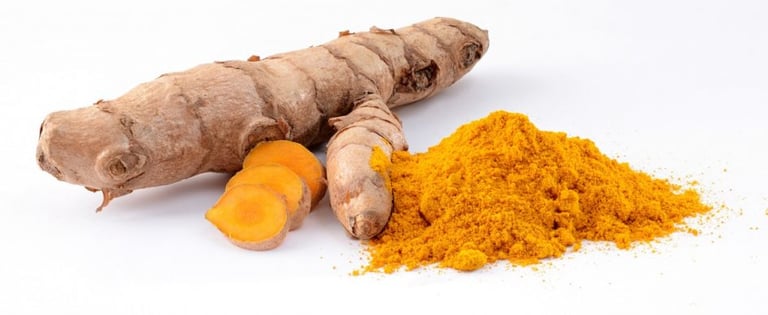Discovering the Power of Ayurvedic Herbs: From Ashwagandha to Turmeric
"Explore Ayurvedic herbs' potency: Harness Ashwagandha's adaptogenic benefits and Turmeric's anti-inflammatory properties for holistic health and wellness."
Ayurveda, the ancient Indian system of medicine, has been using herbs for centuries to promote health and well-being. Ayurvedic herbs are known for their powerful healing properties and have gained popularity in recent years for their natural and holistic approach to wellness. In this article, we will explore two of the most widely used Ayurvedic herbs: Ashwagandha and Turmeric.
Ashwagandha: The Stress Buster
Ashwagandha, also known as Withania somnifera, is an adaptogenic herb that has been used in Ayurvedic medicine for thousands of years. It is known for its ability to help the body adapt to stress and promote overall well-being.
One of the key benefits of Ashwagandha is its ability to reduce stress and anxiety. Research has shown that Ashwagandha can lower cortisol levels, the hormone responsible for the body's stress response. By reducing cortisol levels, Ashwagandha can help calm the mind, improve sleep quality, and enhance overall mood.
Ashwagandha is also known for its immune-boosting properties. It helps strengthen the immune system, making the body more resilient to infections and diseases. Additionally, Ashwagandha has anti-inflammatory properties, which can help reduce inflammation in the body and support overall health.
Furthermore, Ashwagandha has been found to have potential benefits for brain health. It may improve memory and cognitive function, as well as support the nervous system. Some studies suggest that Ashwagandha may even have neuroprotective effects, which could be beneficial in the prevention and treatment of neurodegenerative diseases.
Turmeric: The Golden Spice
Turmeric, also known as Curcuma longa, is a vibrant yellow spice commonly used in Indian cuisine. It is also one of the most well-known Ayurvedic herbs, revered for its numerous health benefits.
One of the key compounds in turmeric is curcumin, which gives it its vibrant color and powerful antioxidant properties. Curcumin has been studied extensively for its anti-inflammatory effects and its potential role in preventing chronic diseases.
Turmeric has been used in Ayurvedic medicine to support joint health and reduce inflammation. It is often recommended for individuals with arthritis or other inflammatory conditions. Studies have shown that turmeric can help reduce pain, swelling, and stiffness in the joints, improving mobility and overall quality of life.
In addition to its anti-inflammatory properties, turmeric has also been found to have potential benefits for heart health. It may help lower cholesterol levels, reduce blood pressure, and prevent the formation of blood clots. These effects can help reduce the risk of heart disease and improve cardiovascular health.
Turmeric is also known for its digestive benefits. It can help improve digestion, reduce bloating, and relieve symptoms of indigestion. Some studies suggest that turmeric may even have a protective effect on the liver, supporting its detoxification function.
How to Incorporate Ayurvedic Herbs into Your Routine
Now that you are familiar with the benefits of Ashwagandha and Turmeric, you may be wondering how to incorporate these Ayurvedic herbs into your daily routine.
Ashwagandha is commonly available in powder or capsule form. It can be taken with water, milk, or added to smoothies and other beverages. The recommended dosage may vary depending on individual needs, so it is always best to consult with a healthcare professional before starting any new supplement.
Turmeric is most commonly used as a spice in cooking. It can be added to curries, stir-fries, and soups to enhance flavor and provide health benefits. To increase its absorption, it is recommended to consume turmeric with black pepper or a source of fat, such as coconut oil.
In addition to consuming Ayurvedic herbs internally, they can also be used topically. Ashwagandha and turmeric are often found in skincare products due to their anti-inflammatory and antioxidant properties. They can help soothe and nourish the skin, promoting a healthy complexion.
Conclusion
Ayurvedic herbs like Ashwagandha and Turmeric have stood the test of time and continue to be valued for their healing properties. From reducing stress and inflammation to supporting brain and heart health, these herbs offer a natural and holistic approach to wellness.
When incorporating Ayurvedic herbs into your routine, it is important to remember that everyone's body is unique. It is best to start with small doses and listen to your body's response. If you have any underlying health conditions or are taking medications, it is always advisable to consult with a healthcare professional before adding any new herbs or supplements to your regimen.
By embracing the power of Ayurvedic herbs, you can tap into nature's wisdom and support your overall well-being.





